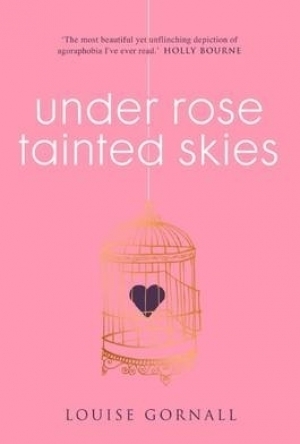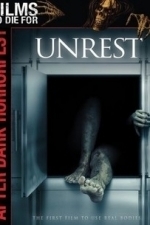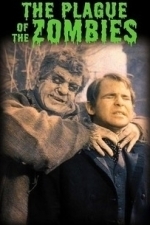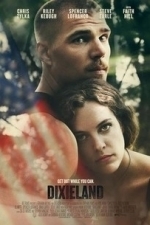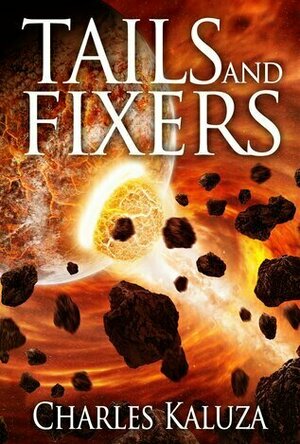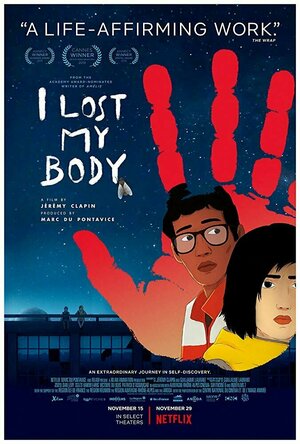Search
Search results
Kristy H (1252 KP) rated Under Rose-Tainted Skies in Books
Feb 13, 2018
Norah is a mentally ill teen struggling with agoraphobia and OCD. She lives with her mom and hasn't attended school in over four years -- in fact, she really hasn't had what society would deem a "normal" outing in that time. Her interactions are with her mom, her therapist, and the online world: watching her former friends live their lives via social media. When a new boy moves in next door, Norah doesn't expect much to change. But when Luke catches Norah trying to fish in groceries left outside on her porch, he helps her. The two slowly begin to interact, and a friendship blossoms. Still, despite the movie "dates" they have at Norah's house and their many chats, Norah is trapped in her own insecurities and fears: Luke deserves a "normal" girl, who can go outside to parties, and who isn't too scared of germs to kiss. What does the future hold in store for Norah and Luke?
This was a lyrical novel offering a rather unflinching portrait of mental illness. (I must point out up front that there's a self-harm/cutting trigger.) The writing is beautiful, almost falling over the line of too flowery at times. Norah is an engaging heroine: a real person living her life with mental illness. The novel truly tries to portray her OCD and agoraphobia in a real (yet humorous at times - it's not just as if you're reading a medical manual) manner. There are some incredibly important passages in this book about how, while Norah may not look sick or mentally ill, she is. I enjoyed her character immensely.
Unfortunately, some of my love of Norah was diminished by slightly unrealistic and odd plotlines. Maybe it's just me, but I was immensely bothered by little things - Luke's dad getting a job at the TSA for 8 weeks (unless that was a long time ago, basically impossible in the security clearance era). In turn, Norah's mom undergoes a hospital stay that seems oddly inserted; further, if the family has money, why is poor, scared Norah forced to stay alone for huge chunks of time without any assistance or company? Luke also comes across as too good to be true sometimes, making me question his character, even when I wanted to buy into the love story. Finally, the ending hinges on a weird twist and seemed to tie things up a little too easily for how strongly the book was presenting Norah's illness throughout.
The angsty teen love genre is certainly in full swing lately and adding in mental illness is popular as well (I think [b:Everything, Everything|18692431|Everything, Everything|Nicola Yoon|https://images.gr-assets.com/books/1450515891s/18692431.jpg|26540216] is my favorite, where it worked so beautifully). Still, I certainly wouldn't not recommend this novel. It's well-written, portrays its mental illnesses very well, and the character of Norah is worth the read alone. There are some flaws, yes, but I did enjoy the book overall. 3.5 stars.
I received a copy of this novel from the publisher and Edelweiss (thank you!) in return for an unbiased review; it is available as of 01/03/2017.
This was a lyrical novel offering a rather unflinching portrait of mental illness. (I must point out up front that there's a self-harm/cutting trigger.) The writing is beautiful, almost falling over the line of too flowery at times. Norah is an engaging heroine: a real person living her life with mental illness. The novel truly tries to portray her OCD and agoraphobia in a real (yet humorous at times - it's not just as if you're reading a medical manual) manner. There are some incredibly important passages in this book about how, while Norah may not look sick or mentally ill, she is. I enjoyed her character immensely.
Unfortunately, some of my love of Norah was diminished by slightly unrealistic and odd plotlines. Maybe it's just me, but I was immensely bothered by little things - Luke's dad getting a job at the TSA for 8 weeks (unless that was a long time ago, basically impossible in the security clearance era). In turn, Norah's mom undergoes a hospital stay that seems oddly inserted; further, if the family has money, why is poor, scared Norah forced to stay alone for huge chunks of time without any assistance or company? Luke also comes across as too good to be true sometimes, making me question his character, even when I wanted to buy into the love story. Finally, the ending hinges on a weird twist and seemed to tie things up a little too easily for how strongly the book was presenting Norah's illness throughout.
The angsty teen love genre is certainly in full swing lately and adding in mental illness is popular as well (I think [b:Everything, Everything|18692431|Everything, Everything|Nicola Yoon|https://images.gr-assets.com/books/1450515891s/18692431.jpg|26540216] is my favorite, where it worked so beautifully). Still, I certainly wouldn't not recommend this novel. It's well-written, portrays its mental illnesses very well, and the character of Norah is worth the read alone. There are some flaws, yes, but I did enjoy the book overall. 3.5 stars.
I received a copy of this novel from the publisher and Edelweiss (thank you!) in return for an unbiased review; it is available as of 01/03/2017.
Gareth von Kallenbach (980 KP) rated Unrest (2006) in Movies
Aug 14, 2019
For many medical school students the most daunting class they face early in their studies is that of Gross Anatomy. The class which introduces aspiring doctors to their first bodies, as well as the reality and complexity of the human anatomy is often seen as a make or break moment for the challenging studies that lay ahead.
In the film Unrest Writer/Director/Producer Jason Todd Ipson follows a group of new students in a Gross Anatomy class. At first the students are shocked by the disfigured cadaver in front of them, but soon begin the dissection they are required to do.
The appearance of the corpse they are working on becomes a source of fixation for one of the students named Allison (Corri English), who becomes convinced that something is not right with the body they are working on, as something tells her that things are not as they seem.
Allison’s concerns are dismissed as her being overwhelmed by her first encounter with a body, and she is told that her concerns will soon pass. Soon after, one of the dissection group is affected by a freak accident, and Allison becomes convinced that there are evil forces at work, and that nobody will be safe until the mystery behind the corpse is settled.
As the body count rises, Allison and her friend Brian (Scot Davis), face a race against the clock and the supernatural to find the cause of the unrest and make things right, before they end up the next victims of a vengeful specter.
Unrest is a very impressive debut for Ipson, who himself was a promising surgeon before turning his talents to directing. The film is well paced and has plenty of tension and suspense without resorting to the clichéd horror staples that have become all too common.
The plot is refreshingly original and deeper than most films in this genre attempt to achieve, as its complexity is deceiving simply. The film can be taken as a simple scare fest, but for those willing to look beneath the surface, there are deeper layers to the film that tackle areas such as the afterlife, intuition, possession, second sight, and the supernatural. While all of those have been covered before in various films, few have ever combined them in such an intelligent fashion that allows the audience to reach their own conclusions on the topics the film introduces.
The cast is solid especially Davis and English who take what could easily be stock characters and infuse a sense of purpose which helps the audience relate to them and their situation.
While the film might have what appears to some to be plot holes, the film is actually a clever examination of the spirit and afterlife, and delivers the goods. While much has been made about the alleged use of real body parts in the film, Ipson is careful not to let his film become a gratuitous gore fest and uses blood and carnage only in the amounts necessary to propel the story.
Unrest is a very solid effort that marks the emergence of a talent to be watched and will delight fans of the genre who want some intelligence with their horror.
In the film Unrest Writer/Director/Producer Jason Todd Ipson follows a group of new students in a Gross Anatomy class. At first the students are shocked by the disfigured cadaver in front of them, but soon begin the dissection they are required to do.
The appearance of the corpse they are working on becomes a source of fixation for one of the students named Allison (Corri English), who becomes convinced that something is not right with the body they are working on, as something tells her that things are not as they seem.
Allison’s concerns are dismissed as her being overwhelmed by her first encounter with a body, and she is told that her concerns will soon pass. Soon after, one of the dissection group is affected by a freak accident, and Allison becomes convinced that there are evil forces at work, and that nobody will be safe until the mystery behind the corpse is settled.
As the body count rises, Allison and her friend Brian (Scot Davis), face a race against the clock and the supernatural to find the cause of the unrest and make things right, before they end up the next victims of a vengeful specter.
Unrest is a very impressive debut for Ipson, who himself was a promising surgeon before turning his talents to directing. The film is well paced and has plenty of tension and suspense without resorting to the clichéd horror staples that have become all too common.
The plot is refreshingly original and deeper than most films in this genre attempt to achieve, as its complexity is deceiving simply. The film can be taken as a simple scare fest, but for those willing to look beneath the surface, there are deeper layers to the film that tackle areas such as the afterlife, intuition, possession, second sight, and the supernatural. While all of those have been covered before in various films, few have ever combined them in such an intelligent fashion that allows the audience to reach their own conclusions on the topics the film introduces.
The cast is solid especially Davis and English who take what could easily be stock characters and infuse a sense of purpose which helps the audience relate to them and their situation.
While the film might have what appears to some to be plot holes, the film is actually a clever examination of the spirit and afterlife, and delivers the goods. While much has been made about the alleged use of real body parts in the film, Ipson is careful not to let his film become a gratuitous gore fest and uses blood and carnage only in the amounts necessary to propel the story.
Unrest is a very solid effort that marks the emergence of a talent to be watched and will delight fans of the genre who want some intelligence with their horror.
Darren (1599 KP) rated The Plague of the Zombies (1966) in Movies
Jul 25, 2019
Story: The Plague of the Zombies starts when Sir James Forbes (Morell) takes his daughter Sylvia (Clare) to Cornwell, to help a for student of his Dr Peter Tompson (Williams) with a string of cases which can’t be explained by the normal science.
When Peter’s wife Alice (Pearce) dies, the two try to figure out what killed her, only what they discover isn’t human. Soon it appears the village is being over run by the zombies and they must hunt down the master controlling them.
Thoughts on The Plague of the Zombies
Characters – Sir James Forbes is the respected doctor that gets called upon to help with an unknown medical case, he will help his former student uncover the case, he does believe something unusual is going on and starts to worry about his daughter. Sylvia is the daughter that goes on the journey, she becomes the target from the master who wants her to become his bride. She is the typical 60’s damsel in distress. Dr Peter Tompson is the one who called for help knowing his mentor wouldn’t let him down when it comes to figuring out the unexplainable. Alice is Peter’s wife that is the latest to become cursed with what is happening within the village, she makes it feel more personal for the two doctors.
Performances – Andre Morell as the more experienced doctor is entertaining to watch through the film, he fits the wiser role with ease. Diane Clare fits your typical 60’s horror figure for the era, never doing much more than screaming. Brooke Williams doesn’t make his character feel like a doctor though.
Story – The story follows a doctor that is asked to investigate a new outbreak of a disease in a small village, only to learn it has connection to voodoo and zombies. We must think that this story was put together before zombie movies had over taken the world, the idea behind voodoo and zombies was always a connection which works for the ideas being used in this story. the story might not be the most intense and does end up being rather safe with how everything being handled, never managing to reach any level of creepiness which could be associated with voodoo zombie creation.
Horror – The horror in this film comes from the ideas of zombies and voodoo, which for the time, was one of the scarier elements of horror, even if it has been watered down in the modern era.
Settings – The film is set in a small Cornwell village, which shows us how the community has become considered, while also showing how the community could stick together with a more evil idea going on.
Special Effects – The effects in the film comes from the zombie creations, which show us a wonderful use of make-up, with other elements of the film coming from how injuries are inflicted.
Scene of the Movie – Alice rises.
That Moment That Annoyed Me – Not as creepy as it could be.
Final Thoughts – This is a horror that when released would have gotten more scares, now it has dated and just doesn’t connect the audience in the same way it once did.
Overall: Hammer horror 101
When Peter’s wife Alice (Pearce) dies, the two try to figure out what killed her, only what they discover isn’t human. Soon it appears the village is being over run by the zombies and they must hunt down the master controlling them.
Thoughts on The Plague of the Zombies
Characters – Sir James Forbes is the respected doctor that gets called upon to help with an unknown medical case, he will help his former student uncover the case, he does believe something unusual is going on and starts to worry about his daughter. Sylvia is the daughter that goes on the journey, she becomes the target from the master who wants her to become his bride. She is the typical 60’s damsel in distress. Dr Peter Tompson is the one who called for help knowing his mentor wouldn’t let him down when it comes to figuring out the unexplainable. Alice is Peter’s wife that is the latest to become cursed with what is happening within the village, she makes it feel more personal for the two doctors.
Performances – Andre Morell as the more experienced doctor is entertaining to watch through the film, he fits the wiser role with ease. Diane Clare fits your typical 60’s horror figure for the era, never doing much more than screaming. Brooke Williams doesn’t make his character feel like a doctor though.
Story – The story follows a doctor that is asked to investigate a new outbreak of a disease in a small village, only to learn it has connection to voodoo and zombies. We must think that this story was put together before zombie movies had over taken the world, the idea behind voodoo and zombies was always a connection which works for the ideas being used in this story. the story might not be the most intense and does end up being rather safe with how everything being handled, never managing to reach any level of creepiness which could be associated with voodoo zombie creation.
Horror – The horror in this film comes from the ideas of zombies and voodoo, which for the time, was one of the scarier elements of horror, even if it has been watered down in the modern era.
Settings – The film is set in a small Cornwell village, which shows us how the community has become considered, while also showing how the community could stick together with a more evil idea going on.
Special Effects – The effects in the film comes from the zombie creations, which show us a wonderful use of make-up, with other elements of the film coming from how injuries are inflicted.
Scene of the Movie – Alice rises.
That Moment That Annoyed Me – Not as creepy as it could be.
Final Thoughts – This is a horror that when released would have gotten more scares, now it has dated and just doesn’t connect the audience in the same way it once did.
Overall: Hammer horror 101
Darren (1599 KP) rated Dixieland (2015) in Movies
Jul 25, 2019
Story: One Last Score starts as young man Kermit (Zylka) is release from prison and returning to the preverbal wrong side of the tracks where the families struggle to make ends meet. He returns home to his mother Arletta (Hill) who wants him to stay out of trouble, his neighbour Rachel (Keough) who is working to help care for her sick mother, with her latest job being as a stripper.
Kermit and Rachel strike up a friendship for the bonding of their own struggles, supporting each other through this tough time. This brings Kermit back to the life of crime, the one he promised to star away from in an attempt to escape the dead-end town with Rachel.
Thoughts on One Last Score
Characters – Kermit is the former criminal that returns to his trailer park home to try and rebuild his life, he wants to be a barber, but is drawn back into his life of crime as he falls in love with Rachel and the two want to escape their dead-end town. Rachel is trying to help her mother paying for medical bills which leads her to a life of stripping, the two bond and plan to escape this life and start over.
Performances – Chris Zylka is good in the leading role, he works well with Riley as we see just how desperate his makes his character feel in what seems like a hopeless situation. Riley Keough shows her talent in this role as the woman that is left with her back against the wall.
Story – The story here shows the tough lives people can be living in America with little money, we see how two people that have turned to a life they didn’t want try to make ends meet in an attempt to escape this style of living. This shows us how another side of America lives which isn’t the side that gets shown enough, the side that are forced into lives they can’t handle, that are dangerous and at times illegal. The pace of the story is slow, but that does help the final pay off in the story which makes you think at times.
Crime – The crime world that Kermit is going into is only scratched on the surface, while we know he doesn’t want to be deeper in, this shows us how on the lines he wants to be to survive.
Settings – The film shows us with the settings the poorer parts of America, the ones living in the trailer parks trying just to get by each day, this helps us understand the characters struggles.
Scene of the Movie – The Lake.
That Moment That Annoyed Me – The strange interviews through the movie, while I understand it reflects real life people, we lose something about the characters we are following.
Final Thoughts – This is a slow burning story that shows the tough times in America, it shows the desperation for two people to escape in a job they would never want to do, but must do.
Overall: Bleak view on America
Kermit and Rachel strike up a friendship for the bonding of their own struggles, supporting each other through this tough time. This brings Kermit back to the life of crime, the one he promised to star away from in an attempt to escape the dead-end town with Rachel.
Thoughts on One Last Score
Characters – Kermit is the former criminal that returns to his trailer park home to try and rebuild his life, he wants to be a barber, but is drawn back into his life of crime as he falls in love with Rachel and the two want to escape their dead-end town. Rachel is trying to help her mother paying for medical bills which leads her to a life of stripping, the two bond and plan to escape this life and start over.
Performances – Chris Zylka is good in the leading role, he works well with Riley as we see just how desperate his makes his character feel in what seems like a hopeless situation. Riley Keough shows her talent in this role as the woman that is left with her back against the wall.
Story – The story here shows the tough lives people can be living in America with little money, we see how two people that have turned to a life they didn’t want try to make ends meet in an attempt to escape this style of living. This shows us how another side of America lives which isn’t the side that gets shown enough, the side that are forced into lives they can’t handle, that are dangerous and at times illegal. The pace of the story is slow, but that does help the final pay off in the story which makes you think at times.
Crime – The crime world that Kermit is going into is only scratched on the surface, while we know he doesn’t want to be deeper in, this shows us how on the lines he wants to be to survive.
Settings – The film shows us with the settings the poorer parts of America, the ones living in the trailer parks trying just to get by each day, this helps us understand the characters struggles.
Scene of the Movie – The Lake.
That Moment That Annoyed Me – The strange interviews through the movie, while I understand it reflects real life people, we lose something about the characters we are following.
Final Thoughts – This is a slow burning story that shows the tough times in America, it shows the desperation for two people to escape in a job they would never want to do, but must do.
Overall: Bleak view on America
Darren (1599 KP) rated Wicked Witches (2019) in Movies
Jul 25, 2019
Story: One Last Score starts as young man Kermit (Zylka) is release from prison and returning to the preverbal wrong side of the tracks where the families struggle to make ends meet. He returns home to his mother Arletta (Hill) who wants him to stay out of trouble, his neighbour Rachel (Keough) who is working to help care for her sick mother, with her latest job being as a stripper.
Kermit and Rachel strike up a friendship for the bonding of their own struggles, supporting each other through this tough time. This brings Kermit back to the life of crime, the one he promised to star away from in an attempt to escape the dead-end town with Rachel.
Thoughts on One Last Score
Characters – Kermit is the former criminal that returns to his trailer park home to try and rebuild his life, he wants to be a barber, but is drawn back into his life of crime as he falls in love with Rachel and the two want to escape their dead-end town. Rachel is trying to help her mother paying for medical bills which leads her to a life of stripping, the two bond and plan to escape this life and start over.
Performances – Chris Zylka is good in the leading role, he works well with Riley as we see just how desperate his makes his character feel in what seems like a hopeless situation. Riley Keough shows her talent in this role as the woman that is left with her back against the wall.
Story – The story here shows the tough lives people can be living in America with little money, we see how two people that have turned to a life they didn’t want try to make ends meet in an attempt to escape this style of living. This shows us how another side of America lives which isn’t the side that gets shown enough, the side that are forced into lives they can’t handle, that are dangerous and at times illegal. The pace of the story is slow, but that does help the final pay off in the story which makes you think at times.
Crime – The crime world that Kermit is going into is only scratched on the surface, while we know he doesn’t want to be deeper in, this shows us how on the lines he wants to be to survive.
Settings – The film shows us with the settings the poorer parts of America, the ones living in the trailer parks trying just to get by each day, this helps us understand the characters struggles.
Scene of the Movie – The Lake.
That Moment That Annoyed Me – The strange interviews through the movie, while I understand it reflects real life people, we lose something about the characters we are following.
Final Thoughts – This is a slow burning story that shows the tough times in America, it shows the desperation for two people to escape in a job they would never want to do, but must do.
Overall: Bleak view on America
Kermit and Rachel strike up a friendship for the bonding of their own struggles, supporting each other through this tough time. This brings Kermit back to the life of crime, the one he promised to star away from in an attempt to escape the dead-end town with Rachel.
Thoughts on One Last Score
Characters – Kermit is the former criminal that returns to his trailer park home to try and rebuild his life, he wants to be a barber, but is drawn back into his life of crime as he falls in love with Rachel and the two want to escape their dead-end town. Rachel is trying to help her mother paying for medical bills which leads her to a life of stripping, the two bond and plan to escape this life and start over.
Performances – Chris Zylka is good in the leading role, he works well with Riley as we see just how desperate his makes his character feel in what seems like a hopeless situation. Riley Keough shows her talent in this role as the woman that is left with her back against the wall.
Story – The story here shows the tough lives people can be living in America with little money, we see how two people that have turned to a life they didn’t want try to make ends meet in an attempt to escape this style of living. This shows us how another side of America lives which isn’t the side that gets shown enough, the side that are forced into lives they can’t handle, that are dangerous and at times illegal. The pace of the story is slow, but that does help the final pay off in the story which makes you think at times.
Crime – The crime world that Kermit is going into is only scratched on the surface, while we know he doesn’t want to be deeper in, this shows us how on the lines he wants to be to survive.
Settings – The film shows us with the settings the poorer parts of America, the ones living in the trailer parks trying just to get by each day, this helps us understand the characters struggles.
Scene of the Movie – The Lake.
That Moment That Annoyed Me – The strange interviews through the movie, while I understand it reflects real life people, we lose something about the characters we are following.
Final Thoughts – This is a slow burning story that shows the tough times in America, it shows the desperation for two people to escape in a job they would never want to do, but must do.
Overall: Bleak view on America
Phil Leader (619 KP) rated Tails and Fixers in Books
Nov 26, 2019
This is an intriguing and interesting story that mixes a few ingredients together into a standard science fiction concept. The result is an engaging and moving story of survival and love.
The main protagonist is Floyd, an ex-military pilot. He is dying from kidney failure until he is given a lifeline - there is a new medical technique that can regenerate his kidneys using his own stem cells, but it will only work if he is put into 'hibernation' for 50 years. And oh, if you accept we will also be sending you on a 50 year trip to another solar system which has been broadcasting radio signals.
The book starts with Floyd waking at his destination and taking a crash course in the language of the alien planet's inhabitants. That is if there is anyone to speak to as 8 years before he arrived an asteroid struck the planet and left the surface desolated. Floyd must find if there any survivors and provide any assistance he can.
From the asteroid impact on, nothing goes to plan and Floyd must use his ingenuity just to survive himself, aided only by the ship's computer and whatever stores Earth thought to provide him with (the lack of beer being his main concern). Fortunately Floyd is very practical and able to improvise solutions to a number of problems as he struggles to survive in the hostile environment.
Once he has established a base he makes contact with the survivors of the asteroid impact, living in an underground bunker. There are humanoids with tails and also a genetically engineered slave race that do all the practical work - the Fixers.
Although they appear to be at least physically like Floyd their society is very alien indeed. Floyd immediately questions how their civilisation works and talks to a number of aliens - some he likes, others he dislikes enormously. Floyd must work out if he fits in and if so how.
The book certainly didn't go as I thought it would. Just as it seems the normal path will be followed in the narrative Kaluza takes a sharp turn and throws everything up in the air and sees how they land. This makes it an interesting read and stops it becoming bogged down in one mode or another. I found the end particularly - and unexpectedly - moving and it made a very suitable ending to what had gone before.
This is the best kind of science fiction. It uses the concept of the alien world to throw sharp relief on our understanding of subjects such as philosophy, genetics, engineering and sociology. There are some clever ideas (I particularly liked the way we got to see the results of Floyd's work beyond the end the novel in a very ingenious flash-forward sequence). The love story is well told and keeps the story balanced between the sometimes heavier going in the more profound themes without being too overworked.
Overall a book I enjoyed and wanted to keep coming back to. I will have to pick up another of the author's books sometime as he clearly has great ideas.
The main protagonist is Floyd, an ex-military pilot. He is dying from kidney failure until he is given a lifeline - there is a new medical technique that can regenerate his kidneys using his own stem cells, but it will only work if he is put into 'hibernation' for 50 years. And oh, if you accept we will also be sending you on a 50 year trip to another solar system which has been broadcasting radio signals.
The book starts with Floyd waking at his destination and taking a crash course in the language of the alien planet's inhabitants. That is if there is anyone to speak to as 8 years before he arrived an asteroid struck the planet and left the surface desolated. Floyd must find if there any survivors and provide any assistance he can.
From the asteroid impact on, nothing goes to plan and Floyd must use his ingenuity just to survive himself, aided only by the ship's computer and whatever stores Earth thought to provide him with (the lack of beer being his main concern). Fortunately Floyd is very practical and able to improvise solutions to a number of problems as he struggles to survive in the hostile environment.
Once he has established a base he makes contact with the survivors of the asteroid impact, living in an underground bunker. There are humanoids with tails and also a genetically engineered slave race that do all the practical work - the Fixers.
Although they appear to be at least physically like Floyd their society is very alien indeed. Floyd immediately questions how their civilisation works and talks to a number of aliens - some he likes, others he dislikes enormously. Floyd must work out if he fits in and if so how.
The book certainly didn't go as I thought it would. Just as it seems the normal path will be followed in the narrative Kaluza takes a sharp turn and throws everything up in the air and sees how they land. This makes it an interesting read and stops it becoming bogged down in one mode or another. I found the end particularly - and unexpectedly - moving and it made a very suitable ending to what had gone before.
This is the best kind of science fiction. It uses the concept of the alien world to throw sharp relief on our understanding of subjects such as philosophy, genetics, engineering and sociology. There are some clever ideas (I particularly liked the way we got to see the results of Floyd's work beyond the end the novel in a very ingenious flash-forward sequence). The love story is well told and keeps the story balanced between the sometimes heavier going in the more profound themes without being too overworked.
Overall a book I enjoyed and wanted to keep coming back to. I will have to pick up another of the author's books sometime as he clearly has great ideas.
Gareth von Kallenbach (980 KP) rated The Bourne Legacy (2012) in Movies
Aug 7, 2019
With the franchise torch passing from Matt Damon to Jeremy Renner, “The Bourne Legacy” shows that there is still plenty of life in the franchise.
The events of the film take place during and after the events in The Bourne Ultimatum”and portrays the effects and consequences of the actions taken by Jason Bourne in the first three movies. Now that Bourne has made Treadstone/Blackbriar public and began to seek some measure of justice for lives that were destroyed by the program, the government attempts to cover-up their operations and discredit Bourne and his associate CIA deputy director Pamela Landy who is facing a myriad of charges.
Enter Stacy Keach and Ed Norton who ooze a chilling creepiness as shadowy government figures who will stop at nothing to cover up the growing scandal, including wholesale murder.
Bourne and his program were, in the words of one character, “the tip of the iceberg” and as such, just another program the government ran, which had the same goals of Operation Treadstone but used different methods to create and train their agents, becomes the focus of the film.
Alex Cross (Renner), finds himself the lone survivor of a purge that has eliminated all the living members of his program, this includes the very scientists who helped created the enhanced agents. As a creation who needs special medications to function, Cross races to Washington in an attempt to reach Dr. Marta Shearing (Rachel Weisz), who has been a medical contact for Cross for years. Shearing herself is a survivor of numerous dangers and attempted assassinations, thanks to the timely arrival of Cross.
In an attempt to escape the government manhunt lead by Agent Eric Byer (Edward Norton), As these events are unfolding, the actions of Jason Bourne and Pam Landy in the final moments of ‘The Bourne Ultimatum’ are beginning to unravel which forces Cross and Marta to flee to Manila to get Cross a shot at being able to function at his elite level with the need for medications.
With locales that include the wilderness of Alaska, the alleys of Chicago, America’s east coast, and the streets of Manila, “The Bourne Legacy” breathes new life into the franchise. While the first hour of the film moved at a slow pace and lacked much action, the last thirty minutes kicked into high gear and included a fantastic chase and action sequence through Manila.
Renner does not try to be Bourne, and instead plays Cross as a kind but efficient warrior. We are given some insight into his backstory and motivations for entering the program, and Renner goes all out for a demanding and physical role while earning the audience’s sympathy for the plight of Cross.
Director Tony Gilroy (Who also had a hand in the script), knows the franchise well as he had a hand in writing the previous three films and directed one. It is clear that he is steering the franchise to a very likely fifth film, perhaps one where Renner and Damon will cross paths which would be to the fans’ delight. Should that not happen, the series is in great hands with Renner.
The events of the film take place during and after the events in The Bourne Ultimatum”and portrays the effects and consequences of the actions taken by Jason Bourne in the first three movies. Now that Bourne has made Treadstone/Blackbriar public and began to seek some measure of justice for lives that were destroyed by the program, the government attempts to cover-up their operations and discredit Bourne and his associate CIA deputy director Pamela Landy who is facing a myriad of charges.
Enter Stacy Keach and Ed Norton who ooze a chilling creepiness as shadowy government figures who will stop at nothing to cover up the growing scandal, including wholesale murder.
Bourne and his program were, in the words of one character, “the tip of the iceberg” and as such, just another program the government ran, which had the same goals of Operation Treadstone but used different methods to create and train their agents, becomes the focus of the film.
Alex Cross (Renner), finds himself the lone survivor of a purge that has eliminated all the living members of his program, this includes the very scientists who helped created the enhanced agents. As a creation who needs special medications to function, Cross races to Washington in an attempt to reach Dr. Marta Shearing (Rachel Weisz), who has been a medical contact for Cross for years. Shearing herself is a survivor of numerous dangers and attempted assassinations, thanks to the timely arrival of Cross.
In an attempt to escape the government manhunt lead by Agent Eric Byer (Edward Norton), As these events are unfolding, the actions of Jason Bourne and Pam Landy in the final moments of ‘The Bourne Ultimatum’ are beginning to unravel which forces Cross and Marta to flee to Manila to get Cross a shot at being able to function at his elite level with the need for medications.
With locales that include the wilderness of Alaska, the alleys of Chicago, America’s east coast, and the streets of Manila, “The Bourne Legacy” breathes new life into the franchise. While the first hour of the film moved at a slow pace and lacked much action, the last thirty minutes kicked into high gear and included a fantastic chase and action sequence through Manila.
Renner does not try to be Bourne, and instead plays Cross as a kind but efficient warrior. We are given some insight into his backstory and motivations for entering the program, and Renner goes all out for a demanding and physical role while earning the audience’s sympathy for the plight of Cross.
Director Tony Gilroy (Who also had a hand in the script), knows the franchise well as he had a hand in writing the previous three films and directed one. It is clear that he is steering the franchise to a very likely fifth film, perhaps one where Renner and Damon will cross paths which would be to the fans’ delight. Should that not happen, the series is in great hands with Renner.
156Reviews (7 KP) rated I Lost My Body (2019) in Movies
May 1, 2020
It wasn't surprising that I Lost My Body, a story about a severed hand that is trying to find its way back to its owner, didn't win “Best Animated feature” at this years Oscars. Originality seems to be quite low on the Academy's criteria. But it was more telling that it lost to Toy Story 4, a fourth instalment of a franchise that began in 1995. Sadly for director Jeremy Clapin, the decision was the right one.
'I Lost My Body' follows Naoufel (Hakim Faris), a young Parisian child with overflowing potential, whose objective in life is to grow up to be “An Astronaut and a Concert Pianist”. Naoufel's life changes direction dramatically when his parents are killed in a car accident and he is placed into foster care. As he grows up, his goals change from playing in concert halls to delivering pizzas in time so his boss won't dock his pay. It's during this endeavour that he “meets” Gabrielle (Victoire Du Bois), who is introduced as just a voice on her buildings intercom but instantly captivates Naoufel and sets him on a mission to meet her in person. After lightly stalking her, he takes a job in her uncle's carpentry business begins courting her with some success. Most of this happens before the half way mark.
All of this is enough for any film, for an animation it's a lot to do, for a viewer it's a lot to take in, but there is even more going on, there is a hand on the loose.
Surprisingly, this is where the film falls short, where it tells the story about the hand. After escaping a medical freezer the hand sets out on a journey to find its body, bit by bit covering the ground that the Naoufel timeline has already gone through and, if anything, distracting from the interesting aspects of the plot. Whether it's through writing (Clapin also wrote the screenplay alongside Guillaume Laurant) or the animation, these scenes lack any stakes. The hand falls off buildings, survives being crushed in a garbage truck, is attacked by rats, and so on, but still remains whole. As gruesome as it sounds, if the hand lost a piece here, a fingertip there, it would truly make it seem like a journey with consequence. Instead the hand seems invincible, it doesn't overcome any of its trials because it was always going to survive, and sadly, makes this side of plot the more redundant the more it progresses.
Given the amount of time it takes to make an animation, it's a shame to leave any of it on the cutting room floor, but by the end of this film you'll be wishing there was a bit more down there, mostly containing images of a severed hand. I believe there is half a great film here, the reviews it's received from around the world show us that. Unfortunately I also believe there is a very average half a film here, that doesn't do enough to justify its existence, and definitely isn't better than Toy Story 4.
'I Lost My Body' follows Naoufel (Hakim Faris), a young Parisian child with overflowing potential, whose objective in life is to grow up to be “An Astronaut and a Concert Pianist”. Naoufel's life changes direction dramatically when his parents are killed in a car accident and he is placed into foster care. As he grows up, his goals change from playing in concert halls to delivering pizzas in time so his boss won't dock his pay. It's during this endeavour that he “meets” Gabrielle (Victoire Du Bois), who is introduced as just a voice on her buildings intercom but instantly captivates Naoufel and sets him on a mission to meet her in person. After lightly stalking her, he takes a job in her uncle's carpentry business begins courting her with some success. Most of this happens before the half way mark.
All of this is enough for any film, for an animation it's a lot to do, for a viewer it's a lot to take in, but there is even more going on, there is a hand on the loose.
Surprisingly, this is where the film falls short, where it tells the story about the hand. After escaping a medical freezer the hand sets out on a journey to find its body, bit by bit covering the ground that the Naoufel timeline has already gone through and, if anything, distracting from the interesting aspects of the plot. Whether it's through writing (Clapin also wrote the screenplay alongside Guillaume Laurant) or the animation, these scenes lack any stakes. The hand falls off buildings, survives being crushed in a garbage truck, is attacked by rats, and so on, but still remains whole. As gruesome as it sounds, if the hand lost a piece here, a fingertip there, it would truly make it seem like a journey with consequence. Instead the hand seems invincible, it doesn't overcome any of its trials because it was always going to survive, and sadly, makes this side of plot the more redundant the more it progresses.
Given the amount of time it takes to make an animation, it's a shame to leave any of it on the cutting room floor, but by the end of this film you'll be wishing there was a bit more down there, mostly containing images of a severed hand. I believe there is half a great film here, the reviews it's received from around the world show us that. Unfortunately I also believe there is a very average half a film here, that doesn't do enough to justify its existence, and definitely isn't better than Toy Story 4.

Orthopedic Patient Education
Medical and Education
App
This award winning app covers over 140 state of the art medical animations that cover a variety of...
